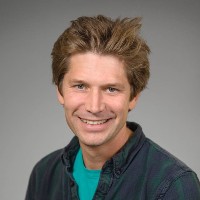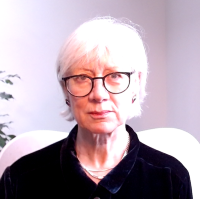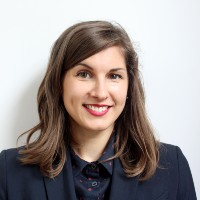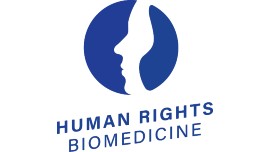COVID-19 and public debate - Lessons learned and preparedness
 2 March 2021, 12:00-14:00 CET
2 March 2021, 12:00-14:00 CET
Organised by the Council of Europe Committee on Bioethics (DH-BIO)
The objective of the webinar will be to share national experiences of public debate during the COVID-19 pandemic and to consider what have we learned. It will reflect on the utility of public debate for better preparedness regarding future public health crises. Key questions to address are:
- What role has public debate played in COVID19 and what have we learned (i.e. what worked well, what worked less well)?
- Preparedness for future public health crises – how does/should public debate feature in addressing future health challenges?
The working language will be English. All participants will be invited to post questions and comments using the chat function.
See the recording of the webinar >>
Context
The COVID-19 pandemic demonstrates the fundamental importance of everyone’s right to the protection of their health. For protection to be effective, especially during a time of great strain on resources and uncertainty regarding a vaccine, the public’s understanding of the health risks and preventative actions are of critical importance. Yet, it can be difficult to convey to the general public with certainty what they should know and how they should act, both individually and collectively towards others.
The major components of public debate - namely information, awareness raising, dialogue and feedback loops between policy makers, scientists and the public - can help to build trust in the management of the crisis. Open, inclusive and transparent dialogue can foster better understanding of biomedical issues and developments, including pandemics. As a tool for the governance of public health crises, such as COVID-19, the Guide to public on human rights and biomedicine has the following aims:
- To raise public awareness by encouraging the circulation of information, views and opinions.
- To promote discussion in the public sphere between different actors, groups and individuals, including those who may be in vulnerable or disadvantaged situations.
- To consult the public including target groups and thereby to consider their interests and understandings, with a view to making informed policy decisions.
Guide to public debate on human rights and biomedicine
The Committee on Bioethics of the Council of Europe, DH-BIO, adopted a Guide to public debate on human rights and biomedicine at its 16th plenary in November 2019, which was subsequently launched during the 13th Global Summit of National Ethics and Bioethics Committees, held on 9-11 September 2020.
In line with Article 28 of the Oviedo Convention, which provides that “the fundamental questions raised by the developments of biology and medicine are the subject of appropriate public discussion in the light, in particular, of relevant medical, social, economic, ethical and legal implications, and that their possible application is made the subject of appropriate consultation”, the Guide aims to support member states and stakeholders in promoting public debate in particular on bioethical issues. Involving the public in discussion on biomedical issues is vital for states in advancing healthcare and in addressing the possible concerns they raise about integrity, dignity, autonomy, privacy, justice, equity and non-discrimination among human beings.
Public debate also forms part of the Committee on Bioethics Strategic Action Plan on Human Rights and Technologies in Biomedicine (2020-2025) which underlines the need to foster public dialogue in order to promote democratic governance and transparency in the field of biomedicine so that the directions of innovation and the ethical challenges raised by technological developments are robustly deliberated.
Now translated into several languages, the Guide is now accessible in English, French, German, Portuguese, Armenian, Georgian, Spanish, Russian and Italian languages.
Report of the Parliamentary Assembly
The parliamentary report on “Ethics in science and technology: a new culture of public dialogue”, which the Parliamentary Assembly of the Council of Europe adopted on 15 September 2020, promotes the DH-BIO Guide to public debate on human rights and biomedicine and emphasises that the Covid-19 pandemic, with its deep impact on societies globally, highlights even more the need to strengthen public dialogue, posing new and complex issues which require participatory policy and decision-making processes during and beyond this crisis.
Moreover, the Parliamentary Assembly of the Council of Europe considers that scientific and technological foresight should no longer remain the exclusive remit of researchers and industry. Public authorities have to involve citizens more widely in decision making on these issues, and policy options should be subject to public debate and scrutiny. Parliaments have a key role to play in this process and should make a wider use of public debate in parliamentary decision-making processes.

Joacim Rocklöv
Professor, Department of Public Health and Clinical Medicine, Umeå University, Sweden
Professor of epidemiology and public health with a background in statistics and mathematics. Leading a research group researching the dynamics, determinants and control of infectious disease in relation to global environmental change. Initiative holder and leader of the Umeå Transformation Research Initiative (UTRI). Published more than 120 research papers cited more than 11,000 times (google scholar), among those several COVID-19 related research works. Awarded the Prince Albert II of Monaco and the Institute Pasture Prize for research on infectious disease and global environmental change in 2019. Contributed to global assessment reports, including the IPCC, and the WHO. Engaged in collaborations with policy-makers in research and innovation projects in and outside of Europe. Associate editor for the International Journal of Epidemiology.

Espen R Nakstad
Assistant Director, Directorate for Health and Social Affairs, Norway
Espen R Nakstad (MD, LL.M, PhD) is a specialist in internal medicine and respiratory medicine at Oslo University Hospital, Norway. He is also a lecturer and author on crisis management. Doctor Nakstad has been the Assistant Director of Health in Norway during the Covid-19 Pandemic.

Diane Beddoes (Moderator)
Director, Deliberate Thinking Ltd.
Diane has 30 years expertise in advising on, designing and running dialogue and engagement projects. Her clients have included public, commercial and third sector organisations including most central government departments, many local authorities, health trusts and institutions, scientific institutions and charities, and international clients in Turkey, Poland, South Africa and Romania. Her projects have included people from all backgrounds and situations, including drug users, senior business and political leaders, disabled people, academics, terminally ill people, homeless people, children and young people and carers. Her mission throughout her career has been to deliver, support and encourage professional, ethical and practical approaches to involving stakeholders and publics in policy and service development and delivery.
Diane runs a small business, Deliberate Thinking, and also works as an associate for Involve, the UK’s leading public participation charity. In this capacity, she is the lead dialogue and engagement specialist and lead evaluator to the UKRI funded Sciencewise programme. In addition to her work on Sciencewise, and also as an Involve associate, Diane is designing a citizens’ assembly on becoming carbon neutral, for the Government of Jersey.
Diane has a PhD in philosophy and is currently midway through a Philosophy of Science MSc at University College London.

Claudia Chwalisz
Innovative Citizen Participation Lead, OECD Open Government Unit
Based in Paris, Claudia Chwalisz leads the OECD’s work on innovative citizen participation, which explores the paradigm change underway towards a more participatory, deliberative, and collaborative governance.
She co-authored the first OECD report on this topic published in June 2020: Innovative Citizen Participation and New Democratic Institutions: Catching the Deliberative Wave (co-authored with Ieva Cesnulaityte). Besides research, Claudia’s work at the OECD involves coordinating the Innovative Citizen Participation Network of leading international practitioners, academics, public servants, and designers, as well as editing the OECD's online digest, Participo.
She is a member of the Democracy R&D Network, a global network of practitioners, academics, and advocates helping decision makers take hard decisions and build public trust.










